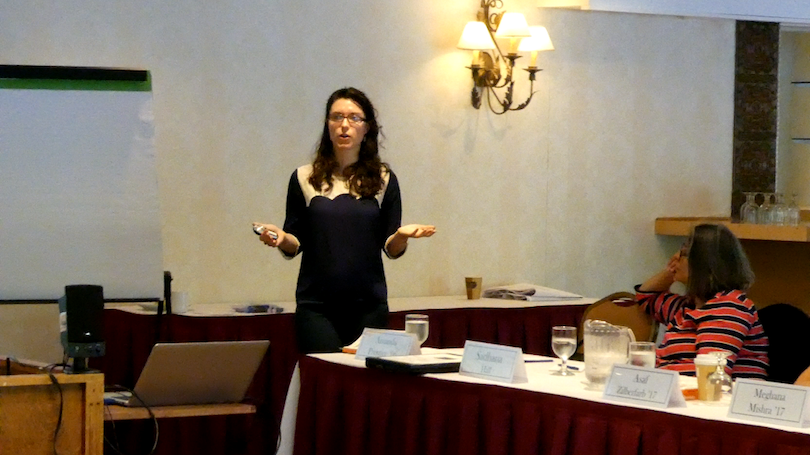
- Public Policy
- Leadership
- Funding
- News & Events
- About the Center
Back to Top Nav
Back to Top Nav
Back to Top Nav
Back to Top Nav
On September 17th, the Rockefeller Leadership Fellows welcomed Amanda Prentice ’06 to lead a session on the book “Getting to Yes: Practical Applications of Negotiation Strategies.” Ms. Prentice presented to fellows a high-level overview of the book; prior to the session, fellows prepared by reading the book, allowing for an engaging discussion. Ms. Prentice applied the lessons of negotiation to two potential real life examples: negotiating a higher salary and negotiating for lower rent. Following this discussion, fellows participated in a negotiation exercise.
Ms. Prentice highlighted that negotiation is not about “winning,” especially as negotiation is about dealing with other people. Her main focus was on avoiding positional bargaining as positions are concrete, while interests can be flexible and negotiated. Ms. Prentice also elaborated on the concept of BATNA (best alternative to a negotiated agreement), specifically that having a BATNA is above your bottom line and allows you to know your own interests.
Ms. Prentice attended UCLA School of Law in 2012, and currently practices as a law associate in a trial group at Dorsey & Whitney’s New York office. Her background made her well-poised to help coach fellows through the negotiation exercise of a fake acquisition. Fellows were divided into teams of two lawyers, with one side for the target company and the other for the buyer. Each team was given a certain set of requirements that did not match the other, making negotiation necessary to reach an acquisition. While the situation was low-stakes, fellows were able to fully assume their roles and practice establishing their BATNA’s. Though we will likely face negotiations differing from an acquisition negotiation, the concepts we learned are applicable across different situations.
Ms. Prentice gave the fellows pieces of applicable negotiation strategies, and the space to practice them, that will serve us well when negotiating our positions within the working world.
- Submitted by Sarah Han '17, Rockefeller Leadership Fellow